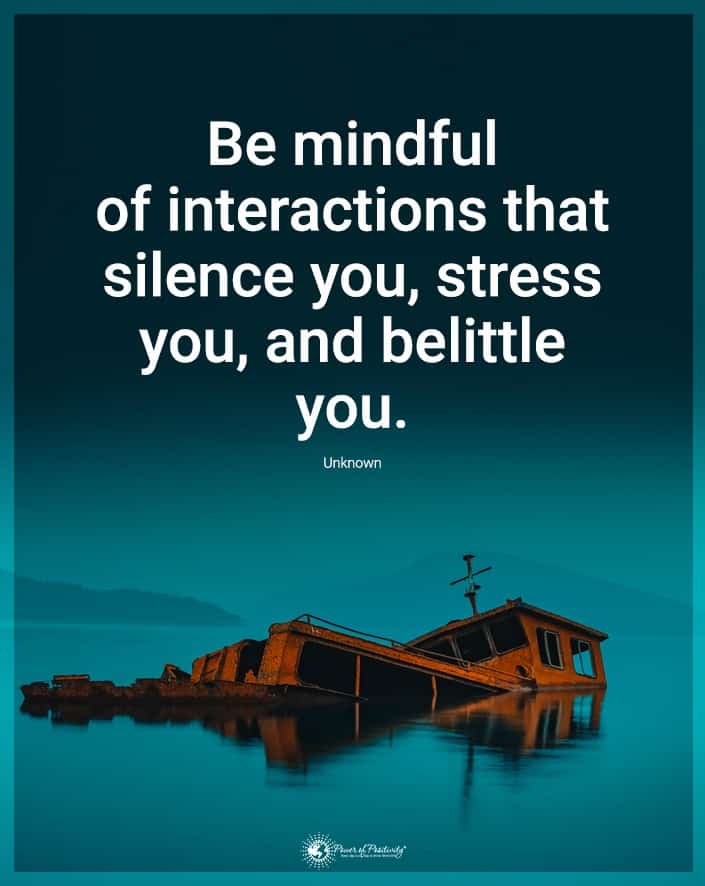Do you feel like your relationship has fizzled out? Have you and your partner stopped interacting in a loving, passionate, or even positive way? Do you think that your partner doesn’t care about you or the relationship anymore? Do you struggle to bring yourself to care, too? If those things describe your situation, your relationship may have developed relationship apathy.
It’s a difficult situation and can be a confusing time for a couple. But just like most relationship problems, it’s something that can be overcome. Here are three positive ways to fix relationship apathy.
1. Determine The Cause Of The Apathy
You can’t fix a problem that you don’t know the source of. While there can be numerous combined factors for relationship apathy, most stem from one primary source. Determining that source will give you and your partner something to focus on as you work on fixing the issue. Here are the possible causes of the relationship apathy you face:
· Routine
Many long-term relationships fall into a routine. There’s a nice feeling of reliability in those routines, but they can also generate apathy. You might start going through the motions without much thought. This can create a situation where you navigate your relationship on autopilot. That loss of deeper human connection is an apparent cause of apathy.
 · Boredom
· Boredom
Healthy relationships are often ones where you feel safe. This is, again, a good thing! But when taken to an extreme, that safety can also breed boredom. When was the last time you tried anything new with your partner? Is your relationship predictable and the same day-in, day-out? That can kill the spark there because no kindling has been added to the fire in a while!
· Complacency Breeds Apathy
Feeling secure in your relationship is a fantastic thing. But sometimes, that security can lead to complacency. Everything is safe, so you don’t feel the need to protect anything. This can lead to everything being taken for granted and effort being abandoned in favor of sitting back and doing nothing. Relationships don’t have to involve tireless, nonstop work, but they require equal effort from all parties.
· Apathy Leads to Avoidance
Are there problems in the relationship that have gone on for longer than they should have? Are they big issues that have caused significant damage? When they’re hard to face, these problems could cause those in the relationship to avoid them. You might want to act like everything’s fine until the issue goes away, even if that’s not healthy, let alone possible.
· Mental Health
Apathy can also be caused by issues that are entirely outside of the relationship. These typically tie in with mental health. Apathy is a prominent symptom of disorders like depression and can be a sign of a bigger problem. As positive thinking decreases, an individual facing these issues will feel more and more numb. Their apathy, stemming from one single factor, will slowly spread into all aspects of their lives. If you think this is the cause of the apathy in your relationship, the apathetic individual may require professional help.
· Loss Of Interest
People drift apart and fall out of love. It’s sad, but it’s true. If your relationship seems to have reached its natural endpoint, it might be time to let it go. This isn’t to say that you can’t fall in love again, rekindle passion, or work through the rough period. But both parties have to be wholly committed to that effort, or it won’t work. If this is the source of relationship apathy, it’s time to take a long, hard look at the relationship. You’ll have to do some reflecting before deciding on your next steps.
It’s Not Apathy! Sometimes, you can misdiagnose a problem in a relationship. And let’s face it, lots of things can look like apathy. Your partner may have a different way of communicating love than you, so to you, it seems like they don’t care. They might be going through a tough time and cannot dedicate more energy to the relationship at this juncture. You may have different interests, so you tend to spend more time apart. Or your partner may have no idea that you think they’re behaving apathetically. Move forward with positive thinking, an open mind, and an understanding heart. Don’t be so sure that your love has fizzled out when it could be something much simpler!
2. Communicate to Overcome Apathy
It’s terribly cliche to say that communication is central to healthy relationships. But it’s a cliche because it’s true! The number one positive step in handling any relationship problem is through communication. Of course, the communication must be done well, without toxic features, to work. Here are some tips for communicating with your partner to fix relationship apathy:
· Voice Your Concerns
You need to tell your partner how you feel if you want them to know about it! If you don’t voice your concerns, they might have no clue that there’s an issue, or they might not realize they’re contributing to it. Explaining your emotions, fears, and thoughts opens up the table for a positive exchange of feelings. Getting things out there doesn’t make them any more real than they already were. When everything’s out in the open, you’ll have a better idea of what’s going on.
· Encourage Your Partner To Voice Their Concerns
Of course, the aforementioned idea of what’s going on is incomplete without your partner’s input. If the relationship apathy has been ongoing for a while, they might be resistant to being vulnerable again. Encourage your partner to consider the discussion table a safe space. Please express your interest in their feelings, affirm your care for them, and make your desire to help the relationship clear. If beneficial, you can develop a conversation system that you agree to stand by during these discussions.
 · Understand Your Partner’s Perspective
· Understand Your Partner’s Perspective
During communication regarding relationship apathy, there should be no invalidation of emotion from either partner. You should both seek to listen and understand each other instead of speaking and defending yourself as a priority. Instead of taking your partner’s words as an attack, put yourself in their shoes. Empathize with who they are, their values, and past experiences to truly understand where they come from. Listening should be what you both focus on most!
· Take Responsibility For Your Faults
Once you’ve heard your partner’s side and they’ve heard yours, it’s time to reflect. What things have you done that contributed to the state of the relationship? What actions should you have taken? Which behaviors should you not have performed? Could you have handled or done something better? You and your partner both need to hold yourself accountable, as no relationship fades from the actions of one alone. Taking responsibility allows you to move forward on the same page with a favorable agreement to work on yourself.
· Seek Counseling for the Relationship Apathy
Relationship counseling can be a beneficial way to encourage open communication with a trained professional. A counselor can help to bring out chief concerns and recommend a course of action. They can also mediate more intense discussions and teach you positive communication methods outside of the therapy room.
3. Bring Life Back Into The Relationship
Relationship apathy can feel like the relationship has died. Nothing interesting happens in it, and everything feels dry. But you and your partner have the power to revive it to its full glory, coupled with all the years of experience and love! Here are some ways to do this positively:
· Break The Routine to Beat Apathy
Schedule a date night and break the monotony of your everyday daily life. This will breathe some life into your typical routine. You can use this time to do things you always loved doing together but haven’t done recently. You can shake things up a little by indulging in a more romantic experience than usual. Anything that changes your day to make it less predictable is a great start.
· Try Something New
Novel experiences strengthen bonds. Doing new things together will help you to both gain new experiences. You can share new memories and deepen your bond through these exciting events! It can be something as simple as trying a new restaurant. It can be something as low effort as baking a new recipe together. Or maybe you can do something adrenaline-pumping, like going bungee jumping. It can be adventurous, like going on a road trip. It can be intimate, like trying something new in the bedroom. The key is to make it unique. It’s all part of your fresh start!
· React Positively To Your Partner’s Efforts
You want to continually encourage your partner to join you in reigniting your relationship. If you don’t react well to their attempts, it’ll only discourage them further. Be welcoming of their efforts and show how much you love and appreciate them. The more encouraged they feel, the more likely they are to continue and to reciprocate when you direct your efforts. Of course, this doesn’t mean to get so extreme with this that it becomes condescending! A little positivity goes a long way.
· Be Your Confident, Genuine Self
Your partner fell in love with who you were and who you are. If you’ve lost some of that over time in the relationship, it’s time to bring the best parts of yourself back to the forefront. It’s not unusual for people to accidentally let go of some of their defining traits when they become “joined” with a partner. Release that unhealthy habit and get back to being true to yourself. Focus on your independence, your happiness, your passions, and the things that bring life to your world. When that life flows back into you, it’ll sail into the relationship, too.
· Truly Enjoy Your Partner’s Company
You and your partner got together because you loved being around each other. That doesn’t have to change, ever. Have fun together. Let loose and laugh. Be a little silly and let your expression show how much you cherish and enjoy their company. When this enjoyment is genuine, love can be rekindled with enthusiasm.
 Final Thoughts On Some Positive Ways To Fix Relationship Apathy
Final Thoughts On Some Positive Ways To Fix Relationship Apathy
Relationship apathy can feel like a death sentence to a partnership, but it doesn’t have to be. If both parties are willing to put in the effort necessary to fix it, you can overcome any obstacles you face.




















